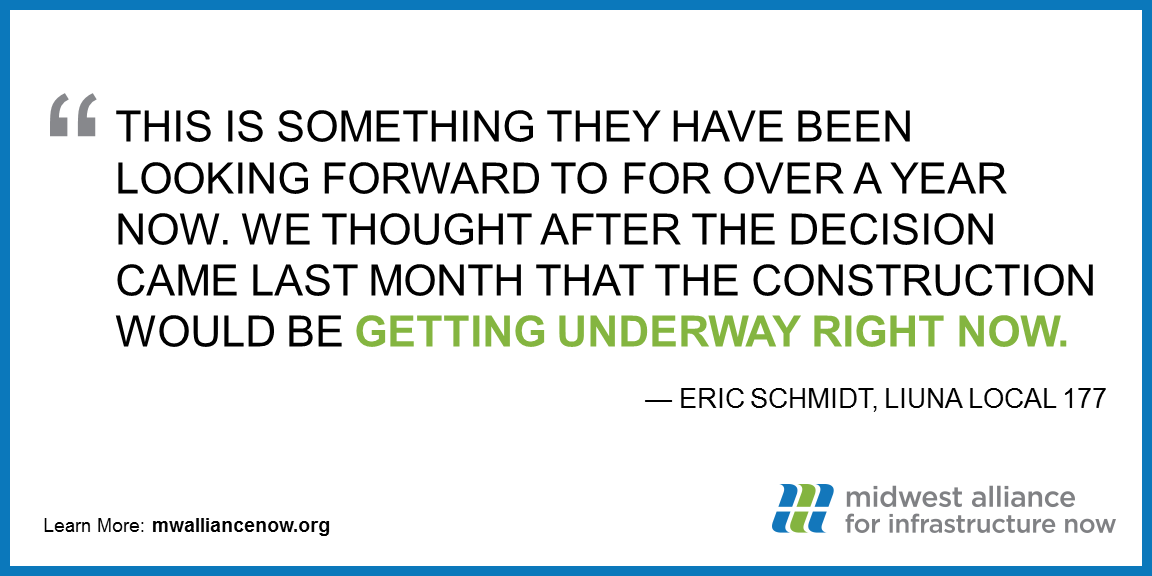
Yesterday, the Iowa Utilities Board (IUB) further delayed issuing a construction permit for the Dakota Access Pipeline after convening for several hours to discuss the matter.
“The board’s lawyers told regulators Monday that Dakota Access, a unit of Dallas-based Energy Transfer Partners, is in substantial compliance with most of the conditions,” noted the Des Moines Register’s Bill Petroski in an article following yesterday’s meeting.
Frustrations & disappointment grow after #DakotaAccess #pipeline project is still held up by state regulators https://t.co/lGH4imJ5LG
— LIUNA (@LIUNA) April 5, 2016
Eric Schmidt, a member of LiUNA’s Des Moines-based Local 177 described a growing sense of frustration within the labor community that the project continues to be held up by state regulators despite being approved last month. “This is something [laborers] have been looking forward to for over a year now. We thought after the decision came last month that the construction would be getting underway right now,” said Schmidt.
MAIN Coalition Chairman Ed Wiederstein has also weighed into the discussion, highlighting the consequences of a delayed construction timeline in a letter to the IUB last week. Wiederstein echoed concerns expressed by Schmidt, and also expressed concerns that further delays could hurt the state’s farming community.
Besides denying Iowans employment, any delay unnecessarily imposed by the Board will have the added consequence of impacting the state’s farmers. It is the stated intention of Dakota Access to construct the pipeline within one growing season and to commence land conservation efforts upon its conclusion. To delay the project will mean that construction will span multiple growing seasons, inconveniencing the majority of landowners who have signed voluntary easements and are eager to start the project.
The IUB unanimously approved the Dakota Access Pipeline in early March, agreeing that the project serves the public interest and benefit. It is important to all Iowans that construction of the pipeline take place in a manner that is least disruptive, but doing so requires action now–not further delays.